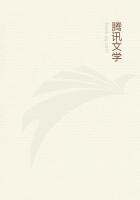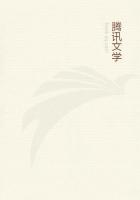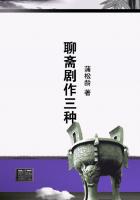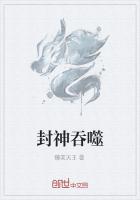One of the most widely famous of these culture-heroes was Manabozho or Michabo, the Great Hare. With entire unanimity, says Dr. Brinton, the various branches of the Algonquin race, "the Powhatans of Virginia, the Lenni Lenape of the Delaware, the warlike hordes of New England, the Ottawas of the far North, and the Western tribes, perhaps without exception, spoke of this chimerical beast,' as one of the old missionaries calls it, as their common ancestor. The totem, or clan, which bore his name was looked up to with peculiar respect." Not only was Michabo the ruler and guardian of these numerous tribes,--he was the founder of their religious rites, the inventor of picture-writing, the ruler of the weather, the creator and preserver of earth and heaven. "From a grain of sand brought from the bottom of the primeval ocean he fashioned the habitable land, and set it floating on the waters till it grew to such a size that a strong young wolf, running constantly, died of old age ere he reached its limits." He was also, like Nimrod, a mighty hunter. "One of his footsteps measured eight leagues, the Great Lakes were the beaver-dams he built, and when the cataracts impeded his progress he tore them away with his hands." "Sometimes he was said to dwell in the skies with his brother, the Snow, or, like many great spirits, to have built his wigwam in the far North on some floe of ice in the Arctic Ocean..... But in the oldest accounts of the missionaries he was alleged to reside toward the East; and in the holy formulae of the meda craft, when the winds are invoked to the medicine lodge, the East is summoned in his name, the door opens in that direction, and there, at the edge of the earth where the sun rises, on the shore of the infinite ocean that surrounds the land, he has his house, and sends the luminaries forth on their daily journeys."[134] From such accounts as this we see that Michabo was no more a wise instructor and legislator than Minos or Kadmos. Like these heroes, he is a personification of the solar life-giving power, which daily comes forth from its home in the east, ****** the earth to rejoice. The etymology of his name confirms the otherwise clear indications of the legend itself. It is compounded of michi, "great," and wabos, which means alike "hare" and "white." "Dialectic forms in Algonquin for white are wabi, wape, wampi, etc.; for morning, wapan, wapanch, opah; for east, wapa, wanbun, etc.; for day, wompan, oppan; for light, oppung." So that Michabo is the Great White One, the God of the Dawn and the East. And the etymological confusion, by virtue of which he acquired his soubriquet of the Great Hare, affords a curious parallel to what has often happened in Aryan and Semitic mythology, as we saw when discussing the subject of werewolves.
[134] Brinton, op. cit. p. 163.
Keeping in mind this solar character of Michabo, let us note how full of meaning are the myths concerning him. In the first cycle of these legends, "he is grandson of the Moon, his father is the West Wind, and his mother, a maiden, dies in giving him birth at the moment of conception. For the Moon is the goddess of night; the Dawn is her daughter, who brings forth the Morning, and perishes herself in the act; and the West, the spirit of darkness, as the East is of light, precedes, and as it were begets the latter, as the evening does the morning. Straightway, however, continues the legend, the son sought the unnatural father to revenge the death of his mother, and then commenced a long and desperate struggle.
It began on the mountains. The West was forced to give ground.
Manabozho drove him across rivers and over mountains and lakes, and at last he came to the brink of this world. 'Hold,'
cried he, 'my son, you know my power, and that it is impossible to kill me.' What is this but the diurnal combat of light and darkness, carried on from what time 'the jocund morn stands tiptoe on the misty mountain-tops,' across the wide world to the sunset, the struggle that knows no end, for both the opponents are immortal?"[135]
[135] Brinton, op. cit. p. 167.
Even the Veda nowhere affords a more transparent narrative than this. The Iroquois tradition is very similar. In it appear twin brothers,[136] born of a virgin mother, daughter of the Moon, who died in giving them life. Their names, Ioskeha and Tawiskara, signify in the Oneida dialect the White One and the Dark One. Under the influence of Christian ideas the contest between the brothers has been made to assume a moral character, like the strife between Ormuzd and Ahriman.
But no such intention appears in the original myth, and Dr.
Brinton has shown that none of the American tribes had any conception of a Devil. When the quarrel came to blows, the dark brother was signally discomfited; and the victorious Ioskeha, returning to his grandmother, "established his lodge in the far East, on the horders of the Great Ocean, whence the sun comes. In time he became the father of mankind, and special guardian of the Iroquois." He caused the earth to bring forth, he stocked the woods with game, and taught his children the use of fire. "He it was who watched and watered their crops; 'and, indeed, without his aid,' says the old missionary, quite out of patience with their puerilities, 'they think they could not boil a pot.' " There was more in it than poor Brebouf thought, as we are forcibly reminded by recent discoveries in physical science. Even civilized men would find it difficult to boil a pot without the aid of solar energy. Call him what we will,--Ioskeha, Michabo, or Phoibos,--the beneficent Sun is the master and sustainer of us all; and if we were to relapse into heathenism, like Erckmann-Chatrian's innkeeper, we could not do better than to select him as our chief object of worship.
[136] Corresponding, in various degrees, to the Asvins, the Dioskouroi, and the brothers True and Untrue of Norse mythology.

